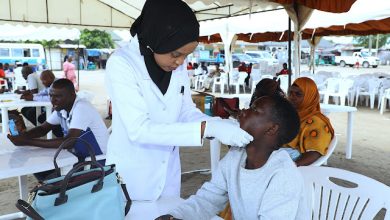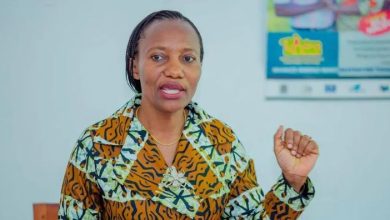Experts: Combating cancer needs social scientists

DAR ES SALAAM: HEALTH experts have underscored the crucial role of social scientists in the fight against cancer, a disease that claims the lives of thousands of Tanzanians, with lifestyle being one of its major causes.
The experts shared their insights in Dar es Salaam recently during the launch of a book titled Cancer Care in Pandemic Times: Building Inclusive Local Health Security in Africa and India.
The Executive Director of Muhimbili National Hospital (MNH), Professor Mohamed Janabi, emphasised the importance of community involvement in cancer prevention and treatment.
“If we equip community health workers, we can bridge the gap between the community and formal health facilities. The government is aware of this and we strongly emphasise strengthening primary healthcare to achieve universal health coverage,” Prof, Janabi stated.
One of the panelists at the symposium, Professor Angwara Kiwara from Kampala International University, argued that cancer prevention efforts should focus on behaviour change at the community level.
“Cancer is a social problem, not just a medical one. I am very happy that the book has captured this,” Prof Kiwara said, pointing out that cancer research should actively involve social scientists.
Commenting on the book, ESRF Executive Director Professor Fortunata Makene explained that the research, conducted since 2018, involved four countries including Tanzania, India, Kenya and the UK.
“We explore possible innovations for addressing cancer and ensuring the availability of medicines and medical devices to aid in treatment,” Prof Makene said.
She also noted that cancer patients experience social challenges, such as stigma, which require social interventions.
Dr Mercy Njeru, a Kenyan health scientist, echoed this sentiment, stressing the importance of cooperation.
“To tackle this issue effectively, we should not work in silos, we must work together. It is not just a health issue, economists and sociologists also need to be involved,” Dr Njeru said.
Health Economist Professor Maureen Mackintosh from the Open University, UK, highlighted a critical issue in cancer treatment: The long delays in diagnosis.
“The longer the delay in getting diagnosed, the more money is spent. Cancer is exacerbated by poverty and if possible, health systems should be reorganised to shorten the time it takes for patients to receive a diagnosis,” Prof Mackintosh advised.
The Director of Cancer Prevention Services at the Ocean Road Cancer Institute (OCRI), Dr Crispin Kahesa pointed out that cancer is not a priority in the country’s health agenda.
“The fight against cancer should include prevention, treatment, palliative care and research. However, since it is not a health priority, the budget for cancer research is minimal.
Most of the focus is on treatment and palliative care, which lack sufficient evidence-based research,” Dr Kahesa stated.
He called for increased resource allocation, including human and financial resources, as well as dedicated time for researchers, emphasising that mentorship is also a key factor in strengthening cancer research.





